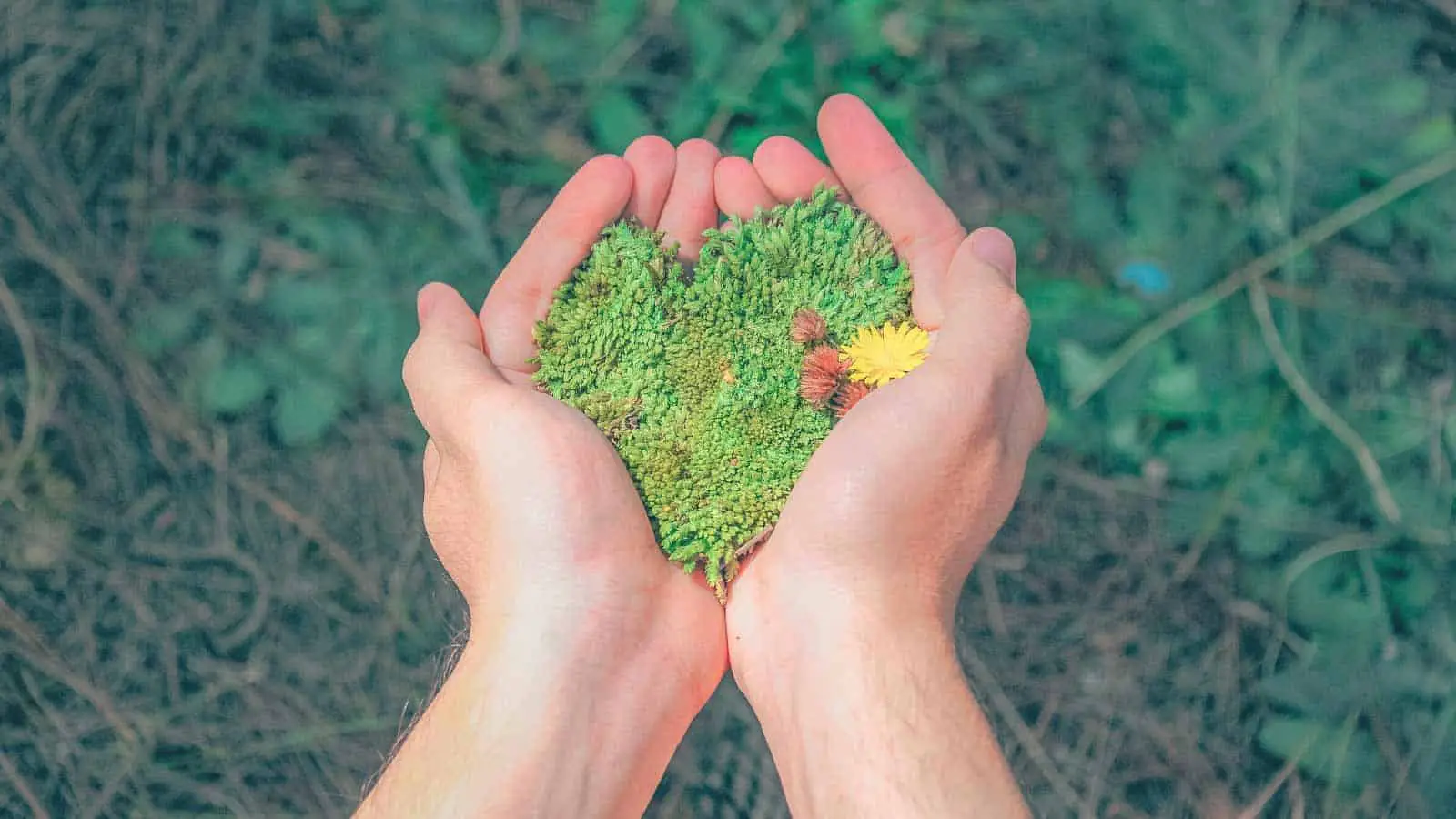The Guest blog article by Yoga teacher Sharka
Have you ever thought what does yoga have in common with eco-friendly living? In fact a lot. I´m convinced that the yogic lifestyle equals the eco-friendly lifestyle. I want to share with you why I think it has a lot in common and put the traditional yogic behaviors with the findings of modern science.
Once you start to detach from your suffering through yoga practice, you begin to wish there would be no suffering in this world. If you bring this attitude off the mat, one thing that often happens is increased compassion with all living beings. You don´t want anyone to suffer.
Consumerism – how to find a yogic compromise?
In traditional yoga, it is believed that one should start practicing yoga by improving the relationship with oneself and others. Before practicing yoga asanas, a yogi should practice Yamas and Niymas, which are yogic principles defined in Yoga Sutras by Patanjali.
If we look at some of them, we will see that yogic living can be really hard in the modern world. Just take aparigraha, for example. It stands for non-possessiveness, non-attachment, or non-greediness. Think about how much we depend on the things we own and how much of our possession we never use, and still, we can´t let it go. The worst is how many of our daily purchases have no purpose.
The very first Yama is ahimsa – non-harming or non-violence principle.
All of us will cause harm unconsciously many times in our life, but when we become aware of causing harm, we should do our best to change our behaviours.
That is not just a yogic way; I think that almost everyone you would ask would tell you that they don´t want to hurt and harm others. And still, it is happening on a huge scale in the modern world, and we all contribute to it with our choices as consumers.
Fast fashion
Child labour, slavery, harmful substances, damaged ecosystems – they are part of our living rooms, our closets, and even of our yoga practice.
A significant amount of all pollution in the world comes from the fashion industry. Fast fashion is harmful in many ways. Firstly, there are mainly female workers in the production who work many hours a day for a minimal wage. They have no other option than working as slaves in a dirty and toxic environment. The ecosystems around the factories suffer, as dyes used in fashion are often poisonous. Then there is pollution and CO2 emissions caused by transportation – fast fashion for the Western markets is mainly produced in Asia. It doesn´t end here – when a significant part of the latest collection isn´t sold, and as there is a need for space for the coming collection, clothes end up in landfills where they decompose and create additional greenhouse gases.
I took the fashion industry as an example, but it isn´t much different in other industries. As a child, I used to have a box on which I put stickers. I had one which said „Made in China“ – what a treasure. And meanwhile – local products became a real treasure.
Buying locally: reduce the harm while contributing to the well being of someone who lives closeby

Removing all the harmful background of the things we own is probably mission impossible, but I have been able to find peace of mind and still own and buy things. How?
- I review what I genuinely need. I stopped going to shopping malls, and I never buy things I know I will not need. You know, there is nothing bad about buying socks when there is a sale, but buying 5 T-shirts and 3 pairs of trousers just because they are cheap and you like them isn´t a good idea. And honestly, most probably, it will make you feel bad sooner or later.
- I buy the majority of my clothes second hand. Why is that better? It reduces the demand for new things, and it prevents things in good conditions from being thrown away, incinerated, or stuffed into landfills.
- I support small businesses that offer eco-friendly products or use trash as material. Are they more expensive? If you think how much money you saved on the previous point, I call it balance. And a little win-win for the environment.
- I even asked my family not to buy me material presents unless I advise them. No unwanted gifts end up unused, and I usually get a contribution to treating myself – like attending a yoga workshop.
- I donate things I no longer need, and I can´t sell. I´m happy that our waste containers for clothing offer the option for all different conditions – they get sorted and provided to charities or recycled.
Why do many yogis become vegetarian or vegan?
If you are familiar with the usual practice of the meat industry, there is a probability that you, as a yogi, will start to feel bad about taking part in it too.
Modern science has proven that the meat industry significantly contributes to global warming.

Every kg of meat produced has high ecological costs – imagine how much food and water a regular cow needs daily. Cows are often fed soy; higher demands of soy create a need for more fields and lead to deforestation. Fewer trees equal lower chance to combat the increasing amounts of CO2 in our atmosphere. When you add the topic of food distribution on the planet, traffic pollution caused by the demand for transporting the meat, and food waste (food not being consumed on time or over-consumption), you see that the whole circle harms everyone on this planet.
I´m not someone who will preach vegetarianism or veganism. I know people have different stories, and not everyone can stop eating meat and dairy altogether. What matters from the ecological point of view, and from the point of lowering the suffering too, is a significant reduction.
I feel bad about radical vegans because making people feel bad doesn´t lead to positive motivation. It leads to anger, frustration, or sadness – which is nothing other than suffering.
I realized this recently when a vegan page attacked me on social media. I´m vegetarian, and my reason not to turn vegan is mainly my allergies – I can´t eat soy, and many nuts, so many vegan options are not suitable for me. But I try to reduce my dairy consumption, and I buy organic whenever I can.
Organic farming matters – not only does it avoid harmful chemical substances, but the animals are ensured higher standards of living. They spend a significant amount of time outside, and their living conditions are solid.
A friend of mine has a controversial opinion, but he has a point. He says: I´m okay with anyone eating meat as long as they know they can kill the animals themselves. Eating meat while being terrified of seeing blood and pretending that none of the terrible conditions in the meat industry exist, is a lie to yourself. And when you think of Satya – the yogic principle of truthfulness or non-falsehood, lying to yourself isn´t very yogic.
The biggest hypocrisy of modern yogis
What is it? I have touched many controversial topics, so can there be anything worse than what has been mentioned? Sadly it can.
Yoga retreats!

Shocking? The environmental cost of inner peace for a week or two is immense. I´m of course not talking about the weekends that you spend in a nearby forest. I have exotic destinations in mind. Aviation is the number one reason for global warming.
Numbers can help understand how bad flying really is. To offset your emissions for a return flight from Europe to India costs about 80 EUR – these are the real costs of actions that will remove the amount of CO2 you personally created by taking that flight. Yes, that´s what it costs per person – and how many people are there in the plane? One such return flight creates double the amount of emissions than what an average Indian person creates in a year. (Numbers were taken from the atmosfair.de calculator).
I no longer take long-distance flights for pleasure. It´s tough to decide never to fly again, so I made a pledge – I would only travel very far if I had a purpose. Related to yoga – I would go to an advanced yoga teacher training that isn´t available in my country and then bring the knowledge to my students, but not a retreat. And I would offset my emissions.
If we would want to achieve equality on this planet, we could consider flying as stealing livable conditions from others. I know the word stealing isn´t perfect for this situation, but I want to bring it into connection with another yogic principle – asteya, which stands for non-stealing or in general, not taking what isn´t mine.
How eco friendly are you: closing thoughts
Through yoga practice, we realize that everything is interconnected. If we live in balance, there is a higher chance others will live in balance too. If we contribute to creating disbalance by taking more than we need, it probably means we took it from somewhere else, and we contributed to suffering.
I know that the realization of the consequences of our behaviors may be hard to swallow. Letting go of what we are used to is a slow and hard process. I believe changing a whole lifestyle in one moment hardly ever works – frustration or burn out often comes up as a result of investing too much energy at the same time. Yoga practice, as well as eco-conscious living, develops in small steps, and we shouldn´t forget about that.
Yoga and our planet need positive motivation. One of the niyamas is santosha – contentment, acceptance, and optimism. Together with tapas – perseverance, persistence, and self-discipline – we can get an answer on how to keep going.
Namaste, Sharka








